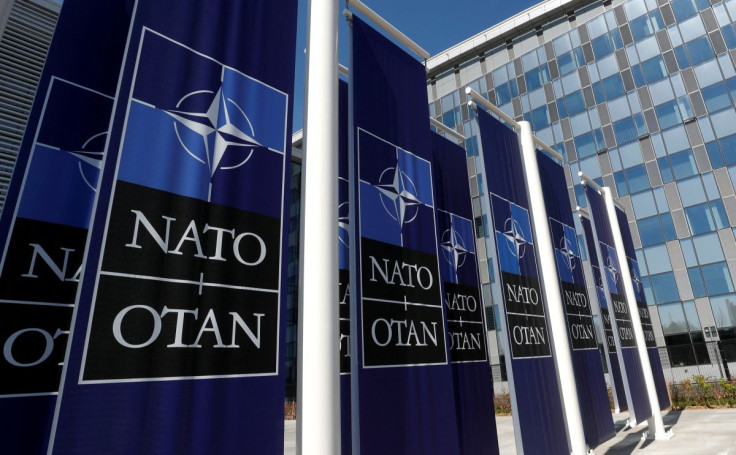Sweden's Ruling Party Poised To Back NATO Bid

Sweden's ruling Social Democrats were poised on Sunday to come out in favour of the country joining NATO, paving the way for an application soon after and abandoning decades of military non-alignment in the wake of Russia's invasion of Ukraine.
Joining NATO was a distant prospect just months ago, but Russia's attack on Ukraine has prompted both Sweden and Finland to rethink their security needs and seek safety in an alliance they stood apart from during the long Cold War.
The war in Ukraine, which Moscow calls a special military operation but which has already killed thousands and displaced millions, shattered long-standing security policies and fuelled a wave of public support for NATO membership in both countries.
In Finland, President Sauli Niinisto on Sunday confirmed the country's intentions to apply, saying the region would benefit.
"We get security and we also extend it through the Baltic sea region and the entire alliance," he told reporters.
Swedish Prime Minister Magdalena Andersson's Social Democrats, the biggest party in every election for the past century, has held internal debates over the past week about dropping a long-standing opposition to NATO membership.
With the party leadership set to decide on Sunday, and widely expected to drop its opposition, support for joining the alliance would command a broad majority in Sweden's Riksdag with much of the opposition already in favour.
A formal application by Andersson's minority government would be sure to follow.
At peace since the days of the Napoleonic wars, Sweden has been more reluctant to cast aside its non-alignment than Finland, which fought a bloody conflict with the Soviet Union in the 20th century.
TENSE WAIT
A membership application would herald a tense wait during the months it takes to be ratified by all NATO members - Turkey has already voiced its objections - though the alliance and the White House have said they were confident any security concerns could be addressed in the interim.
Finland's Niinisto expressed his readiness on Sunday to hold talks with his Turkish counterpart Tayyip Erdogan over his concerns. As a NATO member, Turkey can veto new members.
Both countries are already NATO partners, having taken part in allied exercises for years, and cast off strict neutrality on joining the European Union together in 1995. But they have until now reasoned peace was best kept by not publicly choosing sides.
Russia has warned Sweden and Finland of "serious consequences" and that it could deploy nuclear weapons and hypersonic missiles in the European exclave of Kaliningrad if Sweden and Finland become NATO members.
The decision to slot in under the NATO umbrella would represent a setback for Moscow, with the war in Ukraine triggering the very kind of enlargement of the alliance on Russia's borders that Moscow says it took up arms to prevent.
In the wake of Finland's leaders announcing their determination to join, the Kremlin said it represented a hostile move that threatened Russia, warning vaguely of "retaliatory steps, both of a military-technical and other nature".
Sweden has been rebuilding its military over the last decade, particularly since Russia's annexation of Crimea from Ukraine in 2014, buying U.S.-made Patriot air defence missile systems and basing troops on the Baltic island of Gotland.
A cross-party parliamentary review on Friday said joining NATO would boost Sweden's national security and help stabilise the Nordic and Baltic regions.
© Copyright Thomson Reuters {{Year}}. All rights reserved.





















